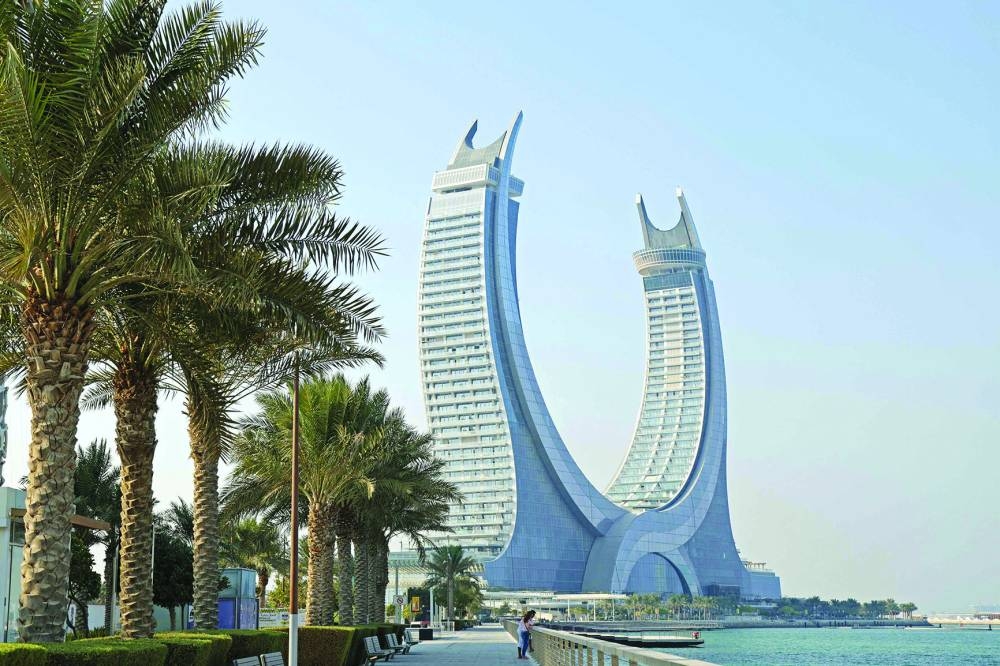The infrastructure industry in Qatar is expected to grow strongly in the coming years, making it an ideal investment destination, according to a report prepared by the Investment Promotion Agency Qatar (Invest Qatar).
The report, ‘Qatar’s Future-Ready Infrastructure’, stated that the country has placed a premium on the development of world-class energy, transportation, and network infrastructure, “and is currently positioned as a global hub for logistics, tourism and connectivity.”
“As demand for infrastructure investment grows, future decisions will play a key role in shaping economic growth and ensuring long-term stability. Qatar is a prime example of how strategic investments can drive economic diversification.
“Recent projects, including the award-winning Hamad International Airport, Hamad Port, Doha Metro and advancements in 5G networks, have strengthened the country's connectivity and reinforced its position as a regional hub for business, logistics and tourism,” stated the report.
It also stated, “Qatar offers attractive opportunities across the infrastructure industry with a strong market outlook,” stated the report, citing air transport, connectivity, leisure and property, and energy as “notable infrastructure projects” that align with the Qatar National Vision 2030 and global trends.
The report further stated that Qatar’s National Development Strategy 3 (NDS3) prioritises strategic infrastructure sectors to drive sustainable development and economic growth.
It also stated that (NDS3) has targeted growth in logistics, “aiming to make Qatar a global hub, enhance air transport, boost tourism and specialise in manufacturing.” Such examples include land transport, seen as “a key to economic growth, with the Qatar 2050 Transportation Master Plan guiding infrastructure investments.”
“The National Manufacturing Strategy 2024-2030 aims to create a resilient, tech-driven industrial sector for global competitiveness. With strong government backing, Qatar's infrastructure industry is projected to grow at 12% CAGR over the next decade, according to BMI Fitch,” the report stated.
Similarly, the Middle East and North Africa (Mena) region is “emerging as one of the fastest-growing infrastructure markets, driven by rapid expansion and numerous large-scale projects, the report also stated.”
The report noted that “the Mena region hosts the fourth largest infrastructure project pipeline among regions globally, with much of this project activity situated across Gulf Co-operation Council (GCC) markets and Egypt.”
The report added: “The Mena region is undergoing a massive infrastructure transformation, aligning with global trends in energy, digitalisation and transportation, with a focus on driving economic diversification. Leisure, property and transportation are one of the largest sectors, with mega rail, airport and port projects (Etihad Rail, airport expansions) boosting trade, tourism and logistics. Improved connectivity supports tourism (13%), a key driver in economic diversification strategies and growth plans of GCC countries.
“Investments focus on modernising roads, water networks, rail systems, ports and airports, enhancing regional connectivity and economic activity. The market is projected to reach $469bn by 2033, growing at a 7% CAGR from $246bn in 2023. Mega projects like Saudi Arabia’s NEOM and the UAE’s Etihad Rail underscore the region’s commitment to urbanisation, economic diversification and global infrastructure leadership.”

Qatar is a prime example of how strategic investments can drive economic diversification, Invest Qatar has stated in its report titled ‘Qatar’s Future-Ready Infrastructure’.

